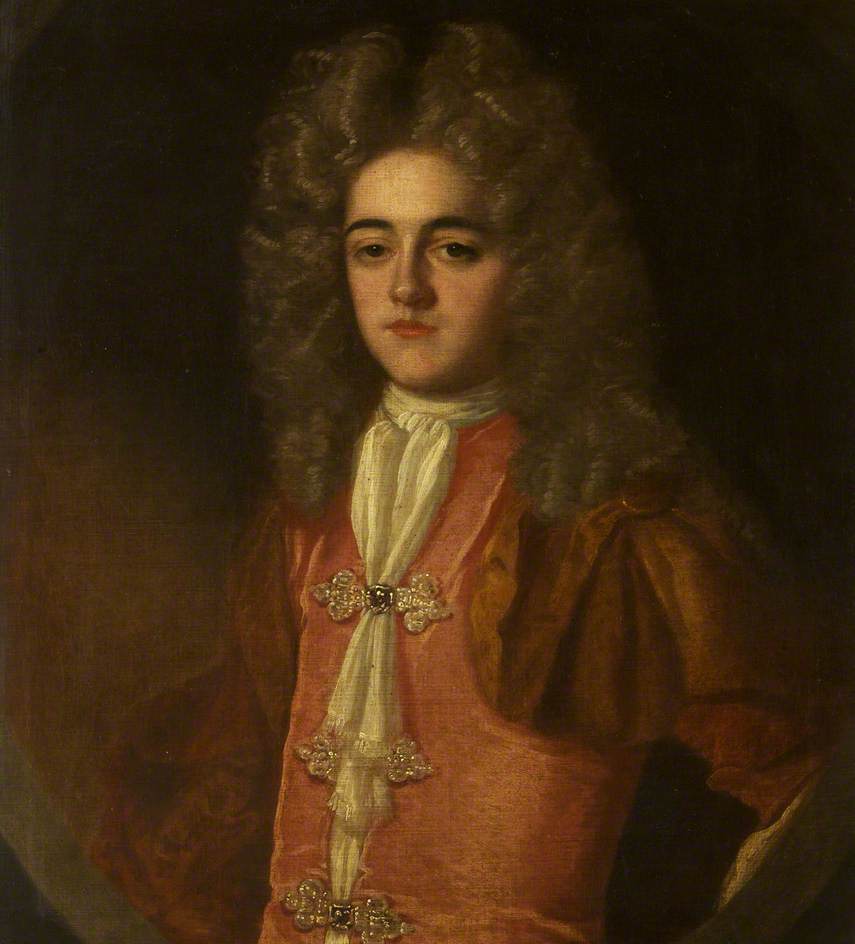Two Monmouth Moments May 21, 2015
Author: Beach Combing | in : Modern , trackbackThe Duke of Monmouth was the illegitimate son of Charles II and a bit of a ‘tosser’ to use the northern vernacular: he looks, in the portrait above, like an underwear model trying to be ‘hot’, or a nineteen year old who has just made it into a boy band. There is no question that he was a talented soldier and brave: he could also charm. But he had, too, an exaggerated sense of his own importance and a talent for prat-falls. We all know someone who will, given an empty room, walk into the chair in the middle of it. Monmouth would deftly tread in the single sticky cow pat in a large field. Here are two episodes from his undoing the Monmouth rebellion of 1685. Beach includes them here because they are so vivid and so difficult to forget.
Monmouth raised an army to challenge his uncle James II to the throne of England and landed in Lyme Regis in the south-west. The rebellion was rapidly put down by James’ army and Monmouth was pulled out of a ditch by royal troops while trying to escape. He was immediately sentenced to death: Monmouth and James were playing for high stakes, the sentence could have been no other. Monmouth decided though to gamble, he had nothing to lose and he wrote to his uncle James II asking for an interview. Monmouth was brought to Whitehall, a place where he had lived many happy hours as a young man, his hands tied by a silk rope. It must have been extraordinarily humiliating to have been presented to the King and the Queen. But Monmouth was playing with his life as stake.
When the Duke of Monmouth was brought before the king, he fell upon his knees, crawling upon them to embrace those of his Majesty, and, forgetting the character of a hero, which he had so long pretended to, behaved himself with the greatest meanness and abjection imaginable, omitting no humiliation or pretence of sorrow and repentance, to move the king to compassion and mercy; but there appearing no great matters of discovery [about the details of the plot], there was no advantage drawn to either side by this unseasonable interview; for tho the king was inclined enough of his own nature to spare him, he was soon made sensible, how cruel a compassion it would be, to expose the publick peace to so great a hazard, and the lives of thousands for that of one man’s, who had deserved so little to live… However the apprehension the Duke had of dying, made him leave nothing unattempted which he fancied might ward him from the fatal blow; he thought his intimating a certain inclination to become a Catholick, might work with the King more than any thing…
Monmouth wrote another letter that evening, but James (who was far more vindictive than suggested in this passage) was having none of it.
The second moment is ghastly and haunting. When Monmouth was brought to meet his executioner, Jack Ketch, he noted gently to Ketch that the executioner did not have the best reputation for dispatching his victims with one clean blow.
Here are six guineas [said Monmouth]. Pray do your business well. Don’t serve me as you did Lord Russell. I hear you struck him three or four times.
Monmouth should have been so lucky… The first blow scraped his neck. The second blow did some more damage at which Monmouth actually looked up reproachfully at Ketch! There are different accounts of just how many blows JK took to finally separate the head from the neck: five, six or seven…
Other Monmouth moments: drbeachcombing AT yahoo DOT com



